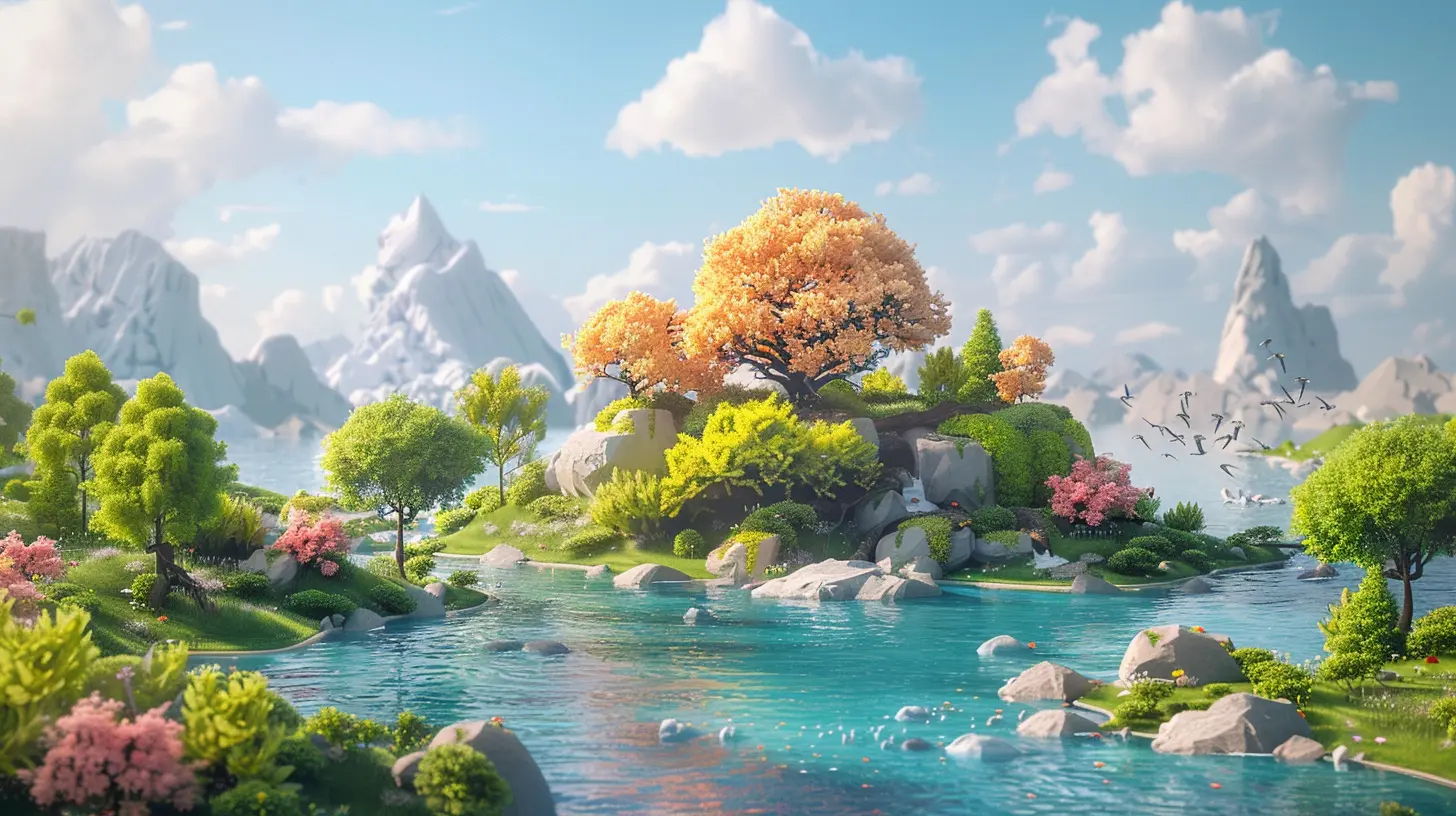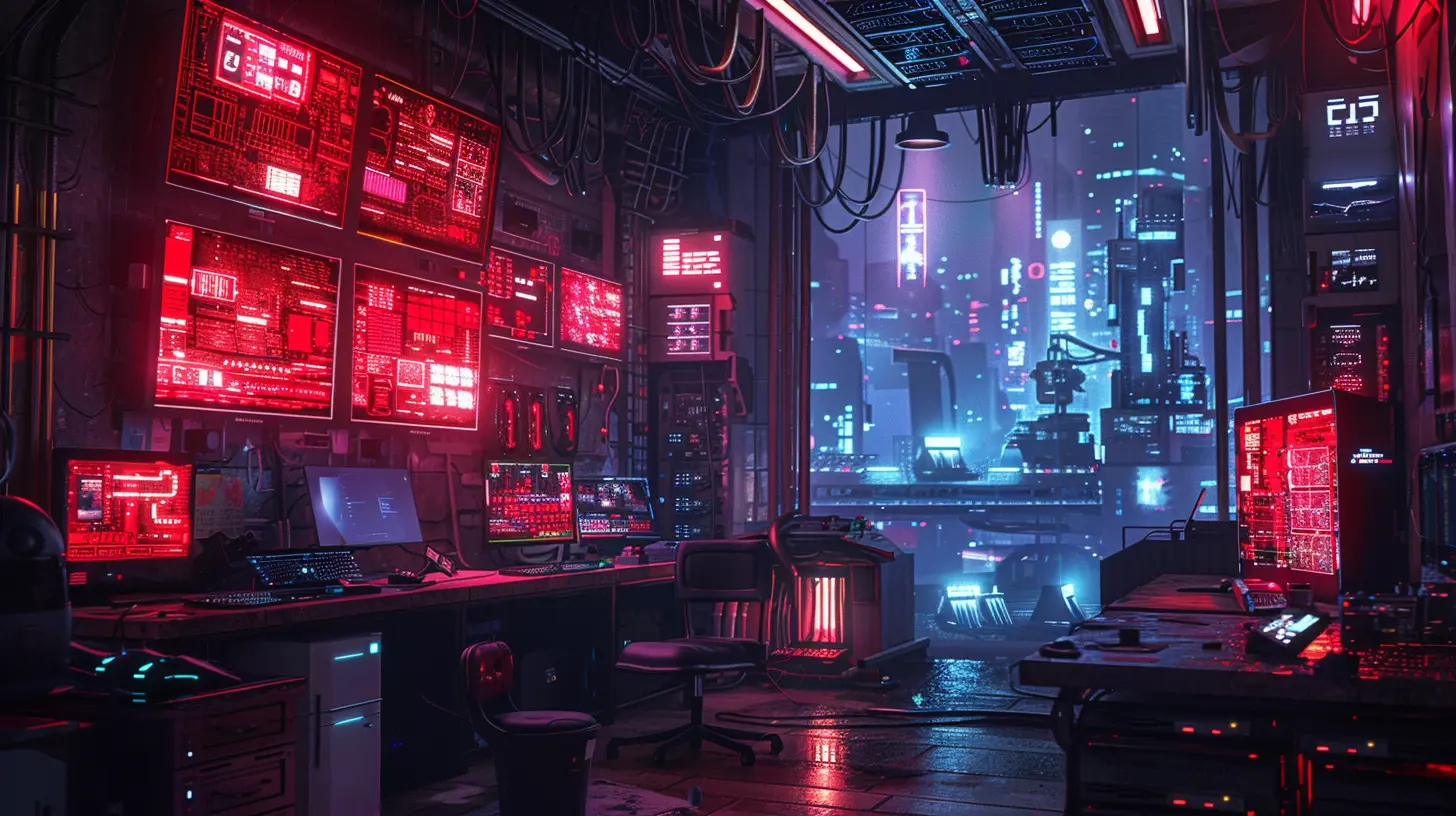Exploring the World of Game Development with Unity
18 May 2025
Are you fascinated by video games and ever wondered what it takes to create one? Well, you’re not alone. Game development is an exciting field that blends creativity, technical skills, and a love for storytelling. And guess what? You don’t need to be a coding genius or a seasoned developer to dive into this world. Thanks to tools like Unity, building games has become more accessible than ever.
Unity is like the Swiss Army knife of game development—versatile, powerful, and user-friendly. It's a cross-platform game engine that has been the backbone of thousands of successful games, from indie masterpieces to big-budget productions. Whether you're aiming to create a simple 2D platformer or an immersive 3D world, Unity has the tools to make your vision a reality.
But how does it all work? And why is Unity such a big deal in the game development community? Let’s take a deep dive into the world of game development with Unity.

What Is Unity?
Before we dive into the technical bits, let's answer the basic question: What is Unity?In simple terms, Unity is a game development platform. It's a software engine that allows you to build and design games for various platforms, including PCs, consoles, mobile devices, and even virtual reality (VR). Think of it as the “workshop” where game developers craft their masterpieces.
One of the reasons Unity stands out is its user-friendly interface. Whether you're a seasoned coder or someone who's never written a line of code, Unity provides a flexible environment that caters to all skill levels. You can build a game using Unity’s visual tools or dive into coding if you're comfortable with programming languages like C#.
Unity is also highly modular. You can integrate various assets—like 3D models, sound effects, and animations—into your project, much like assembling pieces of a puzzle. And the best part? Unity is free for personal use, making it an excellent starting point for budding game developers.

Why Choose Unity for Game Development?
You might wonder, "There are other game engines out there, so why should I choose Unity?" Great question! Let’s break down some of the reasons why Unity is so popular among game developers, both beginners and experts alike.1. Cross-Platform Capability
One of Unity’s biggest selling points is that it supports multiple platforms. You can build a game once and export it to various platforms, including Windows, macOS, Android, iOS, PlayStation, Xbox, and more. This saves a ton of time, especially if you want your game to reach a wider audience. Imagine building a game and being able to release it on both mobile devices and consoles without starting from scratch—pretty cool, right?2. Asset Store
If coding isn't your strong suit or you simply need a quick asset (like a character model or sound effect), Unity’s Asset Store is a lifesaver. The Asset Store is a massive library where you can find pre-made assets—everything from 2D sprites to 3D environments, sound effects, and even scripts. Some assets are free, while others are premium, but either way, the Asset Store can drastically reduce your development time. It’s like having a toolbox filled with all the gadgets you need.3. Community Support
Unity boasts an enormous community of developers, which is a huge advantage. If you ever run into a problem while working on your game, chances are someone else has already had the same issue—and found a solution. You can find tons of tutorials, forums, and YouTube channels dedicated to helping people learn Unity. It’s like joining a club where everyone shares the same passion and is eager to help each other succeed.4. VR and AR Support
Virtual Reality (VR) and Augmented Reality (AR) are becoming more popular, and Unity is leading the charge in this space. With Unity, you can create immersive VR experiences or AR apps that blend the real world with digital elements. If you’re interested in exploring these cutting-edge technologies, Unity is definitely the way to go.5. User-Friendly Interface
Unity’s interface is intuitive and easy to navigate, even for beginners. You can drag and drop assets, adjust properties, and preview your game in real-time—all without writing a single line of code. Of course, if you enjoy coding, Unity allows you to write custom scripts in C
to add more complexity to your game. It’s a win-win situation.

The Unity Development Workflow
Now that you know why Unity is such a popular choice, let’s talk about the actual process of developing a game with Unity. Don’t worry—it’s not as overwhelming as it sounds. In fact, Unity’s development workflow is pretty straightforward.1. Install Unity
First things first, you need to install Unity. You can download the Unity Hub, a centralized platform where you can manage your Unity projects, install different versions of the engine, and access learning resources. Once installed, you can choose a version of Unity that best suits your needs and create your first project.2. Create a New Project
When you open Unity, you can create a new project from scratch. Unity offers different templates based on the type of game you want to create, such as 2D, 3D, or even VR. These templates come pre-configured with settings tailored to the specific project type, making it easier for you to get started.3. Design Your Game Environment
This is where the fun begins. The Unity Editor is where you’ll spend most of your time, designing your game world. You can import assets from the Asset Store or create your own using tools like Blender or Photoshop. Unity’s Scene View lets you visually build your game world by placing objects, adjusting lighting, and setting up cameras. Think of it as arranging the set for a movie—you're in control of every detail.4. Add Game Logic with Scripts
Once you’ve designed your game environment, it’s time to breathe life into it with some coding. Unity uses Cas its primary programming language, and scripts are used to define the behavior of objects in your game. For example, you can write a script that makes a character jump when you press a button or triggers an explosion when an enemy is defeated. Don’t worry if you’re not a coding expert—Unity’s documentation and community resources are incredibly helpful in this area.
5. Test and Debug Your Game
One of Unity’s great features is its Play Mode, which allows you to test your game in real-time. You can hit the "Play" button and interact with your game inside the Unity Editor to see how everything works. If something doesn’t behave the way you expected, Unity’s debugging tools will help you pinpoint the problem and fix it. It's like having a test kitchen where you can try out different recipes before serving the final dish.6. Export Your Game
Once your game is polished and ready for the world to see, you can export it to your desired platform. Unity makes this process super simple. You can choose from multiple platforms (like PC, mobile, or console) and Unity will package everything up for you. Boom! Your game is now ready for players to enjoy.
Unity for Beginners: Should You Try It?
If you’re new to game development, you might be feeling a little intimidated by all this information. But here’s the thing—Unity is designed to be approachable, even for beginners. You don’t need a degree in computer science to start building games with Unity. In fact, many self-taught developers have used Unity to create amazing indie games that have gone on to become huge hits.Unity’s learning curve is gentle, especially if you start with simpler projects and gradually work your way up. There are also tons of free resources available, including Unity's official tutorials. So, if you've ever dreamed of making your own game, Unity is a fantastic place to start.
Unity vs. Other Game Engines
Now, you might be wondering how Unity stacks up against other game engines like Unreal Engine or Godot. While each engine has its strengths and weaknesses, Unity offers a unique balance of power, flexibility, and ease of use. Unreal Engine, for example, is known for its photorealistic graphics, but it has a steeper learning curve and is more resource-intensive. Godot, on the other hand, is lightweight and open-source but lacks the extensive asset store and community support that Unity offers.In short, Unity is a great all-rounder. It’s powerful enough for professional developers but accessible enough for beginners. If you’re looking for a game engine that strikes a perfect balance between ease-of-use and versatility, Unity is a solid choice.
Conclusion
Game development can seem like a daunting task, but tools like Unity make it much more approachable. Whether you’re an aspiring indie developer or someone who just wants to create games as a hobby, Unity is an incredibly versatile platform that offers everything you need to bring your game ideas to life.From its cross-platform capabilities to its vast Asset Store and helpful community, Unity has become a cornerstone of the game development industry. So, what are you waiting for? Dive in, start experimenting, and who knows—you might just create the next big hit in the gaming world!
all images in this post were generated using AI tools
Category:
ProgrammingAuthor:

Adeline Taylor
Discussion
rate this article
3 comments
Ivory Turner
Great insights! Unity truly empowers creativity in game development. Excited to explore further!
May 26, 2025 at 2:31 AM

Adeline Taylor
Thank you! I'm glad you found the insights helpful. Enjoy your journey with Unity!
Dominique Jenkins
Great insights on Unity! Excited to dive deeper into game development.
May 24, 2025 at 2:33 AM

Adeline Taylor
Thank you! I'm glad you found it insightful. Enjoy your journey into game development with Unity!
Peregrine Gray
Unity: where coding meets creativity! Let’s turn coffee into code and pixels into adventures—game on, world creators!" 🎮✨
May 23, 2025 at 4:16 AM

Adeline Taylor
Absolutely! Unity perfectly blends creativity with coding, paving the way for endless game development possibilities. Let's create some magic! 🎮✨



